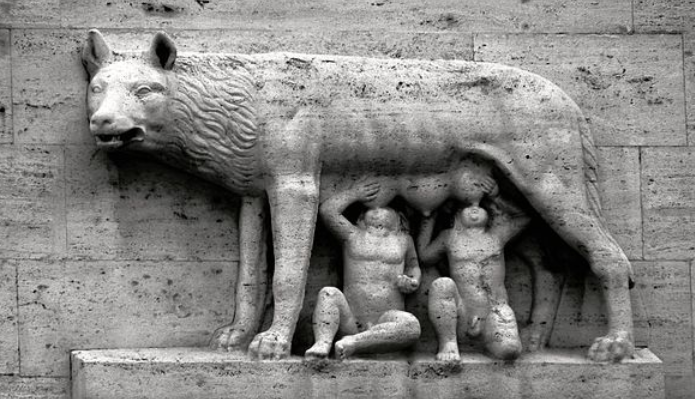
Lupercalia was a Roman feast of purification, dedicated to the she-wolf who saved Romulus and Remus, the traditional founders of the City of Rome. The centre of the festivities in Rome was a cave called the Lupercal, traditionally the site where the wolf suckled the twin brothers until they were rescued by Faustulus, a shepherd.
The Lupercalia was also called dies Februatus, which seems to be derived from proto-italic word februum for purification by making an offering and from the the purification instruments which were called februa. This is the basis for the Roman month named Februarius and our February.
The deity of the month was Neptune.
We are also in the middle of the Parentalia, which began on the 13th February and lasted nine days. It honoured parents and family ancestors. People would visit the family tombs found along the roadsides outside of the City. Here they would honour the ancestors by making offerings.
There would be a family banquet and offerings made to the Lares – the household deities. Romans had a household altar for their worship. The Greek Goddess Hestia was the Goddess of the Hearth – the centre of any household, and Vestal was the Roman equivalent. Dickens borrowed the concept of the Household Gods in his Christmas book ‘the Chimes’.
According to Wikipedia the Codex-Calendar of 354, shows that 13 February had become the holiday Virgo Vestalis parentat, a public holiday which by then appears to have replaced the older parentalia .
